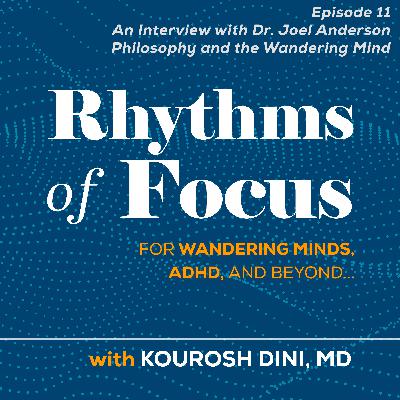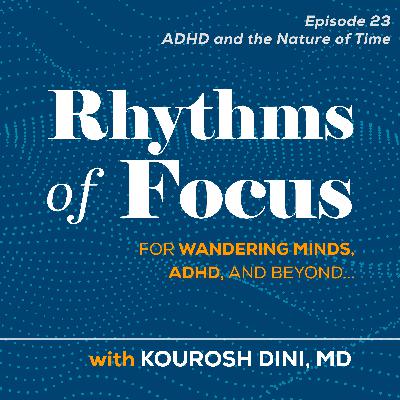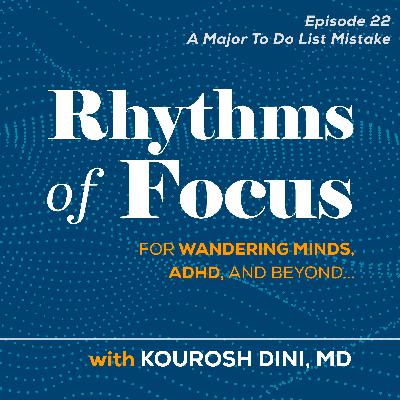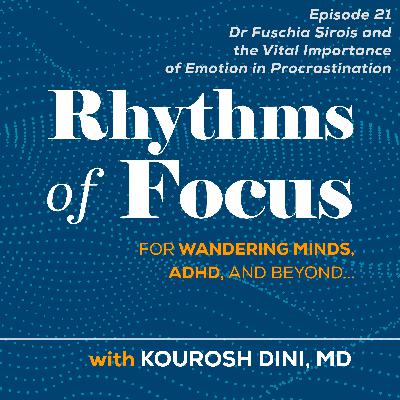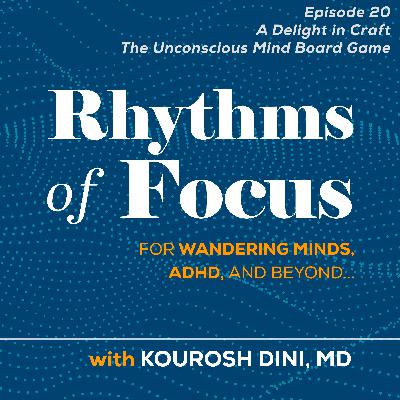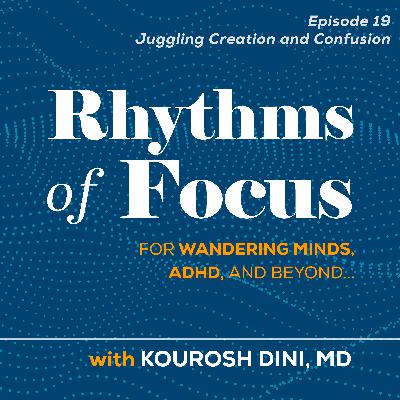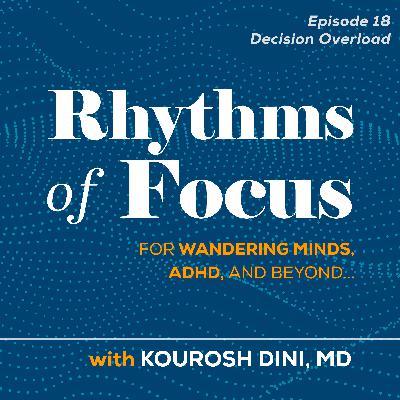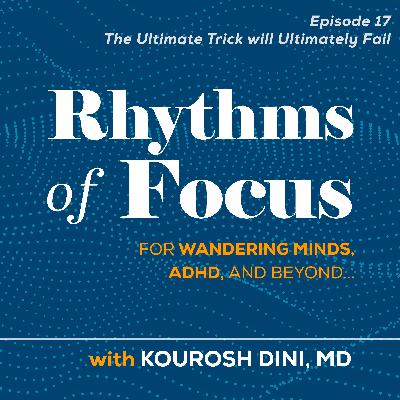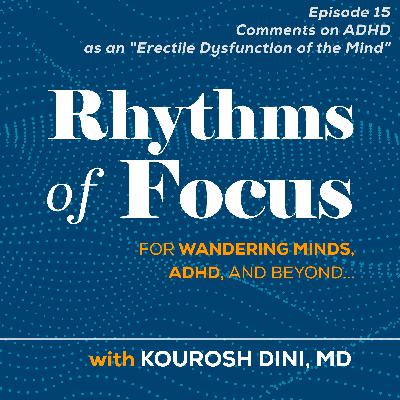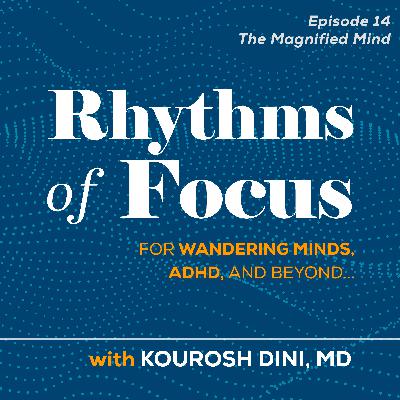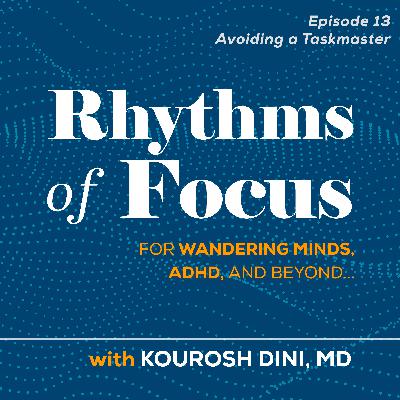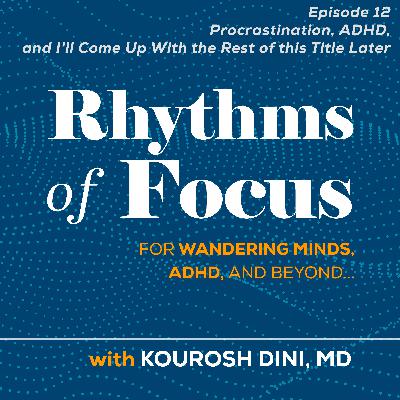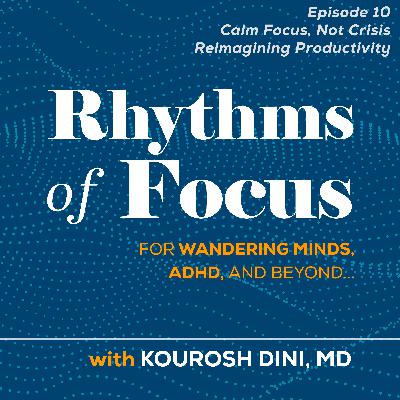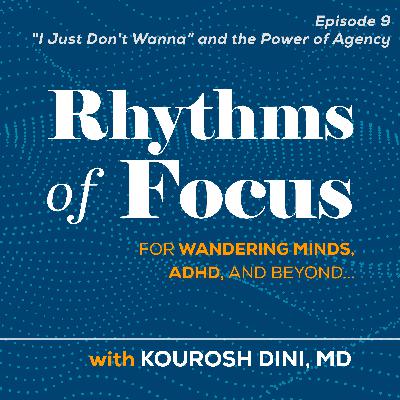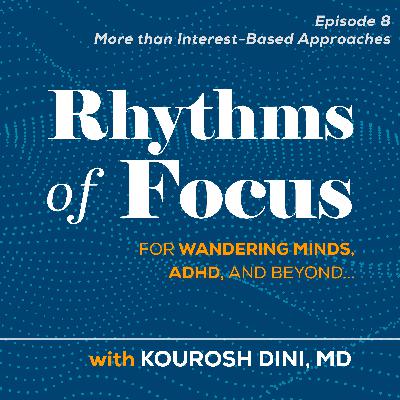An Interview with Dr. Joel Anderson - Philosophy and the Wandering Mind
Description
In this extended episode, professional philosopher Dr. Joel Anderson engages in a deep and stimulating conversation about Wandering Minds, ADHD, and Beyond with our host Dr. Kourosh Dini.
Discussing philosophical and practical issues around agency, procrastination, and the balance between forcing oneself and creating affording conditions, they explore the concept of 'agentic play,' the importance of creating environments that invite rather than coerce, and the role of emotions in the effort to engage with tasks meaningfully.
They question the differences between motivation, effort, and naturally flowing engagement, and consider the implications of removing distractions and setting guiding conditions in a caring manner. The episode ends with reflections on how these philosophical dialogues can shift one's approach to work and life.
00:00 Introduction to the Conversation
02:33 Joel Anderson's Background
03:48 Diving into Philosophical Concepts
05:01 Exploring Agency and Play
05:48 Affordances and Environmental Design
10:08 Self-Binding Strategies and Productivity
17:59 Emotional Work and Hard Labor
21:11 Navigating Procrastination and Effort
30:21 Meeting Tension with Care
30:43 Hierarchical Set of Binds
32:50 Facing the Fog of Tasks
35:40 Building Trust and Self-Efficacy
43:49 Effortless Engagement and Motivation
52:52 Listening to Yourself
55:09 Concluding Thoughts and Reflections
Links
Transcript
Introduction to the Conversation
I've got a treat for you today. Joel Anderson is a good friend of mine. He's a wonderful guy, brilliant philosopher. He's a professional academic philosopher, even. He's got a way of thinking things through in a way I truly admire. Every time we talk, I, I walk away feeling stimulated. I'm ready to write, uh, suddenly I'm seeing something in a new light.
We've been having these conversations in one way or another for over a decade now. Uh, and I thought, you know what, what if we just recorded one and shared it on a podcast? I have no idea whether you'll enjoy it as we do or not, but,
uh, it's, it's, it's cool. We sort of start slow and build up as things go on. Listening to it, I wonder if we've developed a sort of shorthand. This sort of thing happens. It's like any place or person where you've been hanging out or with for a while. Uh, things line up, you know, the organization of either physical or thought space just falls into this functional sort of place.
In any case, I thought it would be entertaining and I'd love to hear your feedback about it. If you're up for it, drop me a line at wander@rhythmsoffocus.com. That's W-A-N-D-E r@rhythmsoffocus.com.
Joel Anderson's Background
I have a chair in moral psychology and social philosophy in the Ethics Institute, which is part of the Department of Philosophy and Religious Studies in the faculty of the humanities at Utrecht University. So that's the whole hierarchical layering of that.
That's the thing. Alright, cool.
Nested communities.
We've been chatting since, I was looking, I was trying to find the first email between us, and the earliest I found was 2014, but it looked like it was in the middle of a conversation.
Yeah, it always feels like that with you, that as whenever we pick it up, it feels like we're just in the middle of a conversation that's been going on for a while, so I
Totally, yeah. So anyway, thank you for being here. You're the first guest and, this is cool.
Well, just so everybody knows, I mean, I'm a huge fan, right? So for me, this is, quite an honor. Following all the things that you've been doing through the years, both in your therapeutic and psychiatric work. I work on, procrastination, research adjacent work that you've been doing, but then also just the tools that you've provided for people and advice on how to get the most out of DEVONthink, or especially OmniFocus.
So you're, you're a very generative and generous human being, and I very much appreciate that.
You are incredibly kind. Thank you.
Diving into Philosophical Concepts
One of the things that I really enjoy in our conversations is how stimulated I feel and that I feel like we really get into stuff . So, for, um, at the risk of, of going all inside baseball, you know, during this, this talk here, I, I'm totally fine with it. Um, because we might just jump in and dive in and talk about concepts and like, do we, how do we define it? How do we present it to the audience that Yeah. You know?
Right.
Know, and really I think, um, what are the times when we feel most alive? I mean, you put it in terms of play, right? I mean, for me, I'd, I think it's a big part of what drew me into philosophy. I. Exploring the possibilities of various words and concepts and ideas is, you know, just like what you're doing if you're noodling on the piano or trying to solve some or other people are trying to solve some problem or a creative endeavor, you've got this canvas and you're trying to figure out how can I represent something with the paint I've got. It's, um, it's this, it's this exhilaration that comes from seeing opportunities and being able to just give yourself over to that creative elaboration of what's going on there.
And I think conversation is, is, is, is a great context in which that happens.
Totally, totally. That discovery, I like that phrase, "give yourself over." Yeah. You know, that, that, that, that, um, um.
Exploring Agency and Play
One of the concepts that , we talk about is agency is one of the main, main things I get into and defining it as, um, uh, uh, being able to decide non reactively, um, or decide and engage non-reactively.
But in that idea of play and discovery and creativity and all that, that "give yourself over," it's like, do you suspend that? Do you like, do you, like, do you let that go? That part of you that has to like, that has to, uh, pause to decide Or then there was this other phrase that you, you'd said, I think the last time we spoke, which was age, "agentic play."
I'm like, oh, wow, that isn't that nice blend of, of ideas. And uh, but that just idea of like creating the space, right? So we're, we're trying to invite the muse, give ourself over, like be able to, to invite that, that that flow and um. And, and the job of the practice, the job of the work, the thing we do is, is we create the conditions for it and then, and then we become it.
Yeah.
Affordances and Environmental Design
I mean, there's this wonderful word that I love using for capturing some of this: "affordances," right? So affordances for thoughtful and intentional play, uh, or affordances for, for insight. I mean, it's got this notion of, um, an invitation. So it's, it's a bit of an odd use of the word affordance, but it was developed by very, uh, thoughtful, it's known as an ecological psychologist named Gibson. And, uh, this notion of an affordance is like a chair. You know, there are chairs that afford sitting, they just like invite you to sit in them. Yeah. Or you have a, a well designed. One of my favorite examples is, you know, you have, you have doors where you want to know, should I push or should I pull?
And a well-designed door is flat, has a flat panel on the side that you should push and has a handle on the side that you should pull . It in certain sense, it, it creates a, a almost a, it prepares you for an experience of flow. It signals to you what's to be done and, and invites you to engage in a certain way.
And I think, that contrast, we're all too familiar with, that contrast between a, uh, a, a situation, a, a work setting in which there's various tasks you need to complete that is aversive. And it's like everything feels like a barrier. There's, or there's things that they're pulling you in all kinds of directions.
And then there's those context in which. You, you kind of this alignment, uh, of what you need to do and what you want to do is kind of ready to hand there. It's just inviting you to take those next steps and, you know, and that's, that's what you're doing in all these different, uh, in all the work you do with like, whether it's, you know, setting up a to-do list in such a way that when you get to the to-do list, you're not suddenly confronted with raw panic of where do I even start?
Mm. But that it's a manageable kind of welcoming space in which to exercise your, uh, your agentic freedom. You're, uh, uh, your, yeah, your agency.
I love that phrase, affordance. You'd, um. I remember we played around with those ideas like that, and I think you'd even had at one point, I don't remember this, but you'd,
I think it was a paper you'd written or something
where you had like seven Yeah, it was my, my inaugural, yeah, my inaugural address.
What we make a, we can make a link, make a link available to that.

